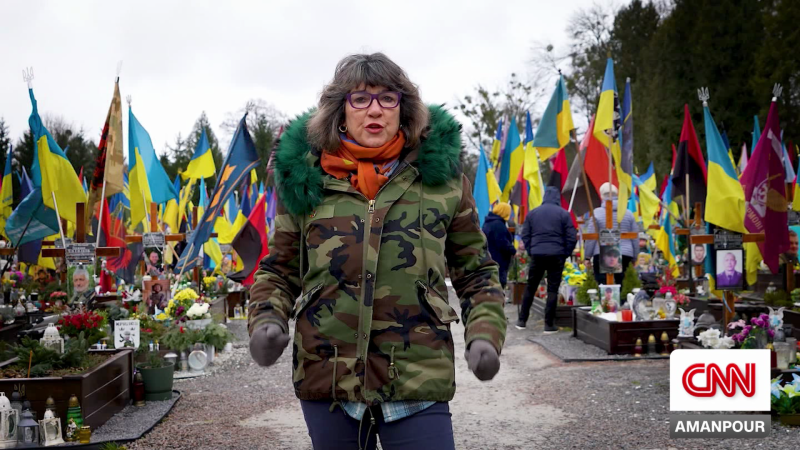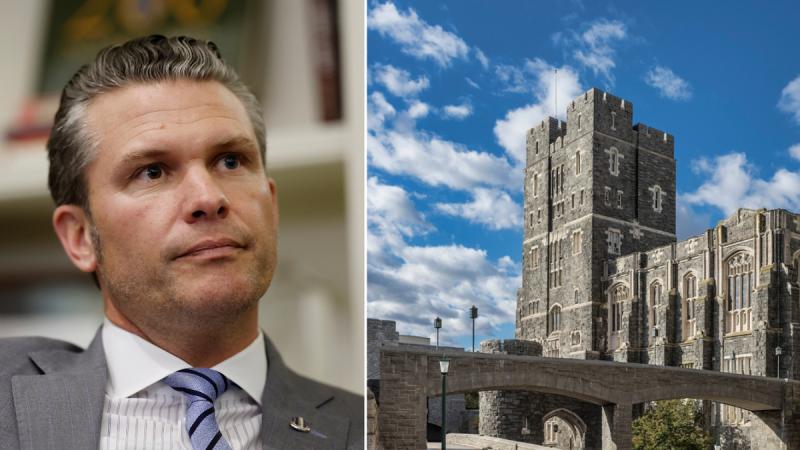February 22, 2024
Europe at a Crossroads: Reflections on Ukraine’s Two-Year Anniversary of Russia’s Invasion
 As Ukraine marks two years since Russia’s invasion, Europe is facing difficult questions. The conflict in Ukraine continues to pose significant challenges for the region as questions regarding security, geopolitics, and global alliances remain unresolved. The invasion by Russia in 2014 marked a significant shift in Europe’s security landscape, leading to increased tensions and a more assertive Russian foreign policy. With the conflict ongoing, Europe is grappling with complex issues that have far-reaching implications for the region and beyond.
One of the key questions facing Europe in the wake of Russia’s invasion of Ukraine is how to respond to Russian aggression. The conflict in Ukraine has highlighted the threat posed by Russia to the security and stability of Europe, leading to concerns about the potential for further aggression and destabilization in the region. European countries have responded to the conflict with a mix of economic sanctions, diplomatic pressure, and military deterrence measures. However, there remains a lack of consensus among European countries on the best approach to dealing with Russia, with some advocating for a more conciliatory approach while others push for a more robust response.
The conflict in Ukraine has also raised questions about Europe’s security architecture and the role of institutions such as NATO and the European Union. The invasion of Ukraine has demonstrated the limits of these institutions in preventing conflicts and protecting the sovereignty of European countries. There have been calls for NATO to play a more active role in countering Russian aggression and enhancing the security of its member states, particularly those in Eastern Europe that feel most vulnerable to Russian expansionism. However, there are also concerns about provoking further escalation and increasing tensions with Russia.
Another thorny issue facing Europe is the question of energy security and the role of Russian energy exports in Europe’s economy. Russia is a major supplier of natural gas to many European countries, which has raised concerns about the potential for Russia to use energy as a tool of political coercion. The conflict in Ukraine has underscored the risks associated with Europe’s dependence on Russian energy, leading to calls for diversification and greater energy independence. However, reducing reliance on Russian energy sources is a complex and long-term process that will require significant investments in alternative energy sources and infrastructure.
Furthermore, the conflict in Ukraine has highlighted the broader issue of European unity and solidarity in the face of external threats. The response to Russia’s invasion of Ukraine has exposed divisions within Europe, with some countries more willing to confront Russian aggression than others. This lack of cohesion weakens Europe’s ability to respond effectively to external challenges and undermines its credibility as a unified actor on the global stage. As Europe continues to grapple with the fallout from the conflict in Ukraine, it will need to find ways to bridge these divisions and forge a common approach to addressing the complex challenges posed by Russian aggression.
In conclusion, the conflict in Ukraine has thrust Europe into a period of uncertainty and introspection, forcing the region to confront difficult questions about security, geopolitics, and global alliances. Two years after Russia’s invasion of Ukraine, Europe remains divided on how best to respond to Russian aggression, how to enhance its security architecture, and how to reduce its dependence on Russian energy. As Europe grapples with these challenges, it will need to find common ground and solidarity in order to effectively address the complex and evolving security threats facing the region. The conflict in Ukraine serves as a stark reminder of the importance of unity, resolve, and strategic vision in confronting the challenges of an ever-changing global landscape.
As Ukraine marks two years since Russia’s invasion, Europe is facing difficult questions. The conflict in Ukraine continues to pose significant challenges for the region as questions regarding security, geopolitics, and global alliances remain unresolved. The invasion by Russia in 2014 marked a significant shift in Europe’s security landscape, leading to increased tensions and a more assertive Russian foreign policy. With the conflict ongoing, Europe is grappling with complex issues that have far-reaching implications for the region and beyond.
One of the key questions facing Europe in the wake of Russia’s invasion of Ukraine is how to respond to Russian aggression. The conflict in Ukraine has highlighted the threat posed by Russia to the security and stability of Europe, leading to concerns about the potential for further aggression and destabilization in the region. European countries have responded to the conflict with a mix of economic sanctions, diplomatic pressure, and military deterrence measures. However, there remains a lack of consensus among European countries on the best approach to dealing with Russia, with some advocating for a more conciliatory approach while others push for a more robust response.
The conflict in Ukraine has also raised questions about Europe’s security architecture and the role of institutions such as NATO and the European Union. The invasion of Ukraine has demonstrated the limits of these institutions in preventing conflicts and protecting the sovereignty of European countries. There have been calls for NATO to play a more active role in countering Russian aggression and enhancing the security of its member states, particularly those in Eastern Europe that feel most vulnerable to Russian expansionism. However, there are also concerns about provoking further escalation and increasing tensions with Russia.
Another thorny issue facing Europe is the question of energy security and the role of Russian energy exports in Europe’s economy. Russia is a major supplier of natural gas to many European countries, which has raised concerns about the potential for Russia to use energy as a tool of political coercion. The conflict in Ukraine has underscored the risks associated with Europe’s dependence on Russian energy, leading to calls for diversification and greater energy independence. However, reducing reliance on Russian energy sources is a complex and long-term process that will require significant investments in alternative energy sources and infrastructure.
Furthermore, the conflict in Ukraine has highlighted the broader issue of European unity and solidarity in the face of external threats. The response to Russia’s invasion of Ukraine has exposed divisions within Europe, with some countries more willing to confront Russian aggression than others. This lack of cohesion weakens Europe’s ability to respond effectively to external challenges and undermines its credibility as a unified actor on the global stage. As Europe continues to grapple with the fallout from the conflict in Ukraine, it will need to find ways to bridge these divisions and forge a common approach to addressing the complex challenges posed by Russian aggression.
In conclusion, the conflict in Ukraine has thrust Europe into a period of uncertainty and introspection, forcing the region to confront difficult questions about security, geopolitics, and global alliances. Two years after Russia’s invasion of Ukraine, Europe remains divided on how best to respond to Russian aggression, how to enhance its security architecture, and how to reduce its dependence on Russian energy. As Europe grapples with these challenges, it will need to find common ground and solidarity in order to effectively address the complex and evolving security threats facing the region. The conflict in Ukraine serves as a stark reminder of the importance of unity, resolve, and strategic vision in confronting the challenges of an ever-changing global landscape.
If you would like to delve into the world of investment topics , go to our partner project Wall Street Wizardry


